“The present moment is filled with joy and happiness. If you are attentive, you will see it.” ―Thich Nhat Hanh
Thich Nhat Hanh needs no introduction as a great teacher and practitioner of mindfulness and loving kindness.
Affectionately known as Thay or teacher in Vietnamese (Thay is pronounced as “Tie”) to his students, Thich Nhat Hanh is a Vietnamese monk and Zen master.
Thich Nhat Hanh was born in 1926 in central Vietnam and entered the monastic life at the age of sixteen at the Tu Hieu Temple in Hue city.
Over the years, he has tirelessly worked to renew Buddhism in Vietnam and the rest of the world.
He was the first to coin the term Engaged Buddhism. Engaged Buddhism is living both a monastic, contemplative life and also engaging with and assisting others who are having a difficult time and suffering.
Thich Nhat Hanh has published over 100 books on the subjects of Engaged Buddhism, meditation, and mindfulness. He has also published other diverse works such as poems, children’s stories and commentaries.
Thich Nhat Hanh currently resides, writes, practices and teaches at the Plum Village in France at the age of 88 years.
I have been deeply influenced by the great works and the kind and loving wisdom of Thay’s teachings for many years. I also own many titles by him both in audiobook and print book format.
I am grateful to have the amazing work and words of Thay to grace my life over the years.
Here are 21 life tips based on the work and wisdom of Thay. This is part-1 of the 2 part post on the wisdom of Thay’s work.
I hope you enjoy reading this post as much as I have enjoyed writing it.
1. The Power Of Staying In And Enjoying the Present Moment
“The present moment is filled with joy and happiness. If you are attentive, you will see it.” ―Thich Nhat Hanh
One of the great gifts that I have learnt from Thay is the uncompromising staying and coming back to the present moment.
Many of us live our lives in the past and many of us live in anticipation of a better future.
While both states might be necessary, when you live in one state or another while ignoring the present, you miss out.
This idea also involves the comparison of the present with the past and with a wistful better future. And comparisions do not make us happy and make us lose value of the current moment.
Living in the present does not mean that we will not use the past and the future as reference points.
It means that instead of outsourcing your happiness to the past or future ideas, you take the radical step of discovering it in the present moment.
“When we are mindful, deeply in touch with the present moment, our understanding of what is going on deepens, and we begin to be filled with acceptance, joy, peace and love.”- Thich Nhat Hanh
So when your attention wanders as it may often do, gently bring your back from the sleepwalking and feel the beauty and joy of the current moment.
“Life is available only in the present moment. Life can be found only in the present moment. The past is gone, the future is not yet here, and if we do not go back to ourselves in the present moment, we cannot be in touch with life.” -Thich Nhat Hanh
And while you know this intuitively that life is only present in the present moment, this simple but powerful message from Thay is worth remembering.
2. Shine the light of Awareness In your life
“Awareness is like the sun. When it shines on things, they are transformed.”- Thich Nhat Hahn
When you begin to enjoy your current moment and become available to it, you see small but meaningful transformations.
These transformations are not huge changes as some self help books claim to offer but are small changes in perception and awareness.
When you become present and available, you shine the brilliant light of self awareness on your life. Parts of life that were on auto pilot begin to reveal themselves.
You begin to see different perspectives and opinions of things that seemed to exist below your radar of conscious awareness.
You can also begin to reframe situations and people and see them in a different light and as Thay points out, it is like lighting up things with the glow of sunlight.
As you begin to embrace these ideas, you slowly begin to:
- Move from indifference and irritation to gratitude.
- You begin to thaw into states of compassion and love for yourself and for others as you become aware of the human condition.
- You begin to see the beauty and joy in everyday things and actions.
“For things to reveal themselves to us, we need to be ready to abandon our views about them.” ― Thich Nhat Hahn, Being Peace
3. Slow down, You Move too Fast
“When we walk like we are rushing, we print anxiety and sorrow on the earth. We have to walk in a way that we only print peace and serenity on the earth… Be aware of the contact between your feet and the earth. Walk as if you are kissing the earth with your feet.” ― Thich Nhat Hanh
This is powerful mindfulness wisdom from Thay. Many of us including myself are often rushing from point A to point B sipping lattes and multitasking. Who has the time for mindful and conscious walking you may ask.
But over the years, I have realized the practice of mindfulness and meditation does not begin and end on the mat or pillow.
It permeates your consciousness and spills over gently into every aspect of your life. As Thay says, walking like you are kissing the earth with your feet is a way of peace and serenity.
Sometimes, we rush through the day because it has become a deep and ingrained habit. Instead walk with gentle intention and with mindfulness.
“The mind can go in a thousand directions, but on this beautiful path, I walk in peace. With each step, the wind blows. With each step, a flower blooms.” ― Thich Nhat Hanh
As we walk with more awareness, we have a chance to open to the joy and beauty inherent in the current moment.
When is the last time you slowed down and enjoyed your path and your walk?
When is the last time you marveled in the beauty of a flower on the path.
When was the last time you allowed the sunshine and the wind to gently caress your being?
When was the last time you walked in the grass?
When was the last time you looked at daily things with wonder and amazement?
When was the last time you slowly sipped your tea and enjoyed every smell and drop?
You can begin to slow down to absorb the dance of life and rushing through things begins to lose its immediate and gripping appeal.
“Drink your tea slowly and reverently, as if it is the axis on which the world earth revolves – slowly, evenly, without rushing toward the future.” ― Thich Nhat Hanh
4. Develop a Deep Sense Of Self Acceptance
“To be beautiful means to be yourself. You don’t need to be accepted by others. You need to accept yourself.”― Thich Nhat Hahn
If there is one powerful lesson that I have learnt from Thay, it is the idea of self acceptance.
Society often externalizes beauty and we begin to feel that to accept the self, we need to get accepted by others. But this formula is backwards.
While social conformation and belonging are powerful influencers of human behavior, if you do not accept yourself, others might find it difficult to do so.
There are always events and people who show up and remind us of all our inadequacies and deficiencies.
Instead of living up to the impossible task of seeking acceptance from everyone, it is best to come to terms with the self and accept ourself.
Accepting the self is the first step to greater excellence and making changes that you have always wanted to make.
“People have a hard time letting go of their suffering. Out of a fear of the unknown, they prefer suffering that is familiar.” ― Thich Nhat Hanh
5. The Tireless Gift Of the Breath
“Breath is the bridge which connects life to consciousness, which unites your body to your thoughts. Whenever your mind becomes scattered, use your breath as the means to take hold of your mind again.”― Thich Nhat Hanh, The Miracle of Mindfulness: An Introduction to the Practice of Meditation
There is a analogy in Eastern wisdom to compare the mind and the ever jumping thoughts to a monkey. This is not a derogatory or an insulting comparison and I believe it is to illustrate the restless and jumping monkey behavior of the mind.
It may be difficult to filter every thought and control their movement in our minds. Thay suggests that using the breath to calm and soothe the mind works better. I could not agree more.
If there is any modality of calming the mind and becoming aware of the body including meditation, yoga and other practices, breath is integral to them all.
In fact many of my yoga teachers believe that if you do not breathe, it is not yoga at all. The ancient practice of Pranayama uses the breath to reconnect with the vital life force of prana or chi.
“Smile, breathe and go slowly.”― Thich Nhat Hanh
What I learnt from the timeless wisdom of Thay is to become aware of the inpouring and the outpouring of the breath as a vehicle and source of calm.
“I would like to offer one short poem you can recite from time to time, while breathing and smiling. Breathing in, I calm body and mind. Breathing out, I smile. Dwelling in the present moment I know this is the only moment. ‘Breathing in, I calm my body.’ This line is like drinking a glass of ice water-you feel the cold, the freshness, permeate your body. When I breathe in and recite this line, I actually feel the breathing calming my body, calming my mind. ‘Breathing out, I smile.’ You know the effect of a smile. A smile can relax hundreds of muscles in your face, and relax your nervous system. A smile makes you master of yourself. That is why the Buddhas and the bodhisattvas are always smiling. When you smile, you realize the wonder of the smile.”― Thich Nhat Hanh, Being Peace
I love the idea of tagging the in breath and the out breath with gentle but actionable triggers of calming the body and the idea of smiling.
Just the act of thinking about calmness in the in-breath and the idea of you smiling while breathing out can make you feel relaxed and get you into a smiling consciousness.
“Feelings come and go like clouds in a windy sky. Conscious breathing is my anchor.”― Thich Nhat Hanh, Stepping into Freedom: Rules of Monastic Practice for Novices
Many of us fight our feelings and emotions and resist them. Thay suggests the analogy of the expansive and windy sky as the big mind. Imagine feelings to be the clouds that drift by the windy sky.
They come and then they go. It would be a futile exercise to prevent the clouds from coming or to control them too much.
A better way would be to allow them to come and be on their way while returning to the silence and calmness of the breath.
Allow conscious breathing to be your anchor or your guide to navigate the skies filled with feelings.
6. How To Have Great Relationships by Dropping Blame
“When you plant lettuce, if it does not grow well, you don’t blame the lettuce. You look for reasons it is not doing well. It may need fertilizer, or more water, or less sun. You never blame the lettuce. Yet if we have problems with our friends or family, we blame the other person. But if we know how to take care of them, they will grow well, like the lettuce. Blaming has no positive effect at all, nor does trying to persuade using reason and argument. That is my experience. No blame, no reasoning, no argument, just understanding. If you understand, and you show that you understand, you can love, and the situation will change” – Thich Nhat Hanh
One of the major reasons that I was initially attracted to Thay’s teachings was the simplicity of his explanations. Everyone can understand his simple examples.
Thay advises that blame and argument often do not serve any productive purpose. Blame and criticism only seek and achieve to alienating and upsetting others. A better way is to radically understand the view point and seek to increase that understanding in our life.
Of course, blame and argument are easier than empathy and understanding. Taking the path of empathy means that you have to do the extra emotional work of putting yourself in the position of others.
When you understand the view point of others, you have an opportunity to feel compassion for their situation. Instead of attacking them with blame and criticism, you can respond with love and understanding.
7. Why Peace Is Inseparable From Deep and Lasting Happiness
“Many people think excitement is happiness…. But when you are excited you are not peaceful. True happiness is based on peace.” ― Thich Nhat Hanh, The Art of Power
This idea of lasting peace and contentment leading to happiness is diffcult for many of us to comprehend. If you are like me, you conditioned the self to believe and think that happiness is available after achieving something. I gradually realized that this method was not working for me.
The general model of happiness is to do something, have things and then become happy.
But this model, shown to be ineffectual by happiness research is not the best way.
A more realistic model is to become happy now with what we have, then act and have from that perspective of power.
Thay takes this model to the next level by affirming that a deep sense of peace and contentment is the way to lasting happiness.
You may think that becoming happy leads you to becoming more peaceful and contended. But when you embrace the way of the peace and fold it into your daily practice, your daily life and your moments, you become more alive and happy.
“It is my conviction that there is no way to peace – peace is the way.”― Thich Nhat Hanh, The Art of Power
“Root out the violence in your life, and learn to live compassionately and mindfully. Seek peace. When you have peace within, real peace with others is possible.”- Thich Nhat Hanh
Having preset ideas of happiness can end up making our search for happiness unrealistic and never ending.
When we have a model of happiness that is based on acquiring things and seems to be just out of reach, we set the bar higher when we achieve one more milestone.
I agree with Thay that opportunities for joy and happiness are present in the simple pleasures of life and they are often right in front of us.
“Our notions about happiness entrap us. We forget that they are just ideas. Our idea of happiness can prevent us from actually being happy. We fail to see the opportunity for joy that is right in front of us when we are caught in a belief that happiness should take a particular form.” – Thich Nhat Hanh
8. The Incredible Joy And Power Of a Simple smile
“Waking up this morning, I smile. Twenty-four brand new hours are before me. I vow to live fully in each moment and to look at all beings with eyes of compassion.”- Thich Nhat Hanh
Smiling is a powerful psychological state that can alter our thoughts, feelings and our demeanor.
Psychology research has time and again demonstrated the power of body language and transformative gestures like smiling.
We have been deeply conditioned to be serious in life. I think that Thay’s advise is right on. Smiling can be a result of the joy you feel but the reverse is also true that a simple smile can be the genesis of great joy.
If you ever wondered what was one of the greatest secrets of communication and breaking the ice with people, look no further that a genuine smile. It can light up a room and light up a person’s life.
“Sometimes your joy is the source of your smile, but sometimes your smile can be the source of your joy.”
“Because of your smile, you make life more beautiful.”― Thich Nhat Hanh
And it is most beneficial to make the simple and powerful gift of smiling into a habit. And it is a habit that costs nothing and gives and gives and gives back to you in return.
“From time to time, to remind ourselves to relax, to be peaceful, we may wish to set aside some time for a retreat, a day of mindfulness, when we can walk slowly, smile, drink tea with a friend, enjoy being together as if we are the happiest people on Earth. This is not a retreat, it is a treat. During walking meditation, during kitchen and garden work, during sitting meditation, all day long, we can practice smiling. At first you may find it difficult to smile, and we have to think about why. Smiling means that we are ourselves, that we have sovereignty over ourselves, that we are not drowned into forgetfulness. This kind of smile can be seen on the faces of Buddhas and bodisattvas.” – Thich Nhat Hanh
9. Redefine Love And Supercharge your Relationships
“If you love someone but rarely make yourself available to him or her, that is not true love.” -Thich Nhat Hanh
Another effective way of supercharging your relationships is to embrace the power of love and giving unconditionally.
When you become available and grace your attention and voluntary and conscious presence on another, you are in effect telling them that you deeply care for them.
In this age of technology it becomes easy to distract yourself when you speak to others, especially the people in your life who matter.
Instead of being on a device while listening and speaking to others, why not give them the great gift of your undivided attention and presence.
“In true love, you attain freedom.” – Thich Nhat Hanh
“If you love someone, the greatest gift you can give them is your presence” – Thich Nhat Hanh
When we give attention to others that matters, we are telling them that they deeply matter and we really love spending time with them.
“The most precious gift we can offer anyone is our attention. When mindfulness embraces those we love, they will bloom like flowers.” – Thich Nhat Hanh
10. An Attitude And Habit Of Deep Heartful Gratitude and Miracle Thinking
“Around us, life bursts with miracles–a glass of water, a ray of sunshine, a leaf, a caterpillar, a flower, laughter, raindrops. If you live in awareness, it is easy to see miracles everywhere. Each human being is a multiplicity of miracles. Eyes that see thousands of colors, shapes, and forms; ears that hear a bee flying or a thunderclap; a brain that ponders a speck of dust as easily as the entire cosmos; a heart that beats in rhythm with the heartbeat of all beings. When we are tired and feel discouraged by life’s daily struggles, we may not notice these miracles, but they are always there.”― Thich Nhat Hanh, Essential Writings
It is true that life is full of miracles. But we need to be ready to allow the miracles to grace our lives and be available to them.
Thay advises you to look for the smile everyday pleasures and find the miraculous in them. I think that this is wonderful advice because over time our view gets jaded and boredom sets in.
We often see the daily miracles that are available to us with a small shift of perspective.
When we begin to look at the world with a tiny renewed sense of wonder, life transforms.
“The miracle is not to walk on water. The miracle is to walk on the green earth in the present moment, to appreciate the peace and beauty that are available now.”- Thich Nhat Hanh
But you have to become aware of the natural state of sleepwalking that we can fall into if we do not allow the awareness to see miracles in everyday living.
You have a choice in your life. You can choose to live with deep heartful gratitude and as if there are myriad miracles all around.
Or you can choose to live as if the world is out to get you and miracles are few and far between and you set the bar higher and higher for wonder, amazement and joy.
“People usually consider walking on water or in thin air a miracle. But I think the real miracle is not to walk either on water or in thin air, but to walk on earth. Every day we are engaged in a miracle which we don’t even recognize: a blue sky, white clouds, green leaves, the black, curious eyes of a child — our own two eyes. All is a miracle.” – Thich Nhat Hanh
This is the end of Part-1. Please stay tuned for part 2. Let me know in the comments below on which tip resonated with you. You know that I love hearing from you.



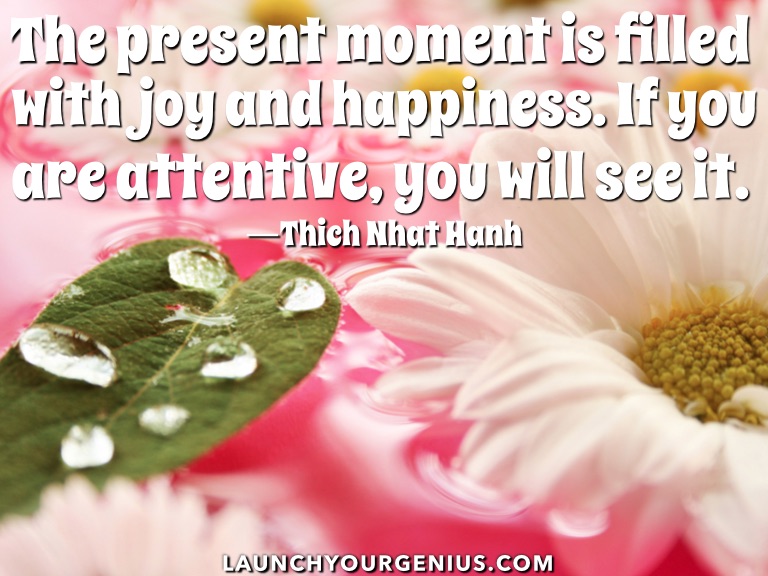
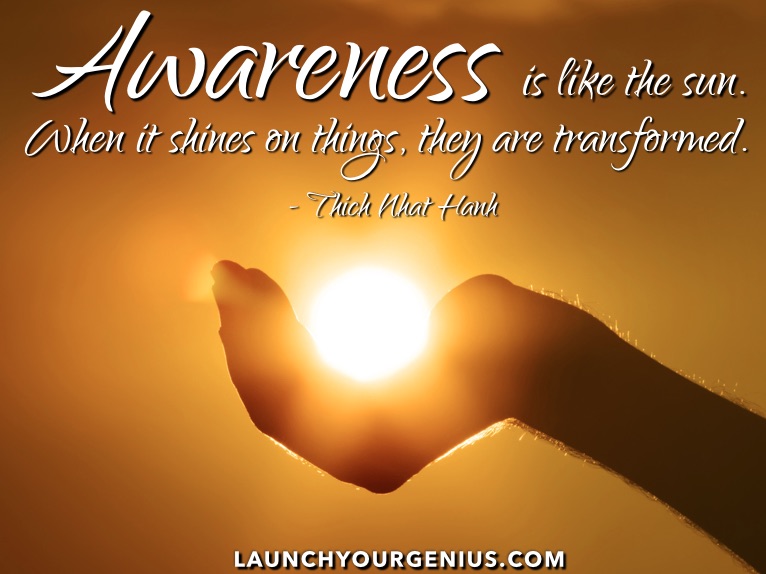
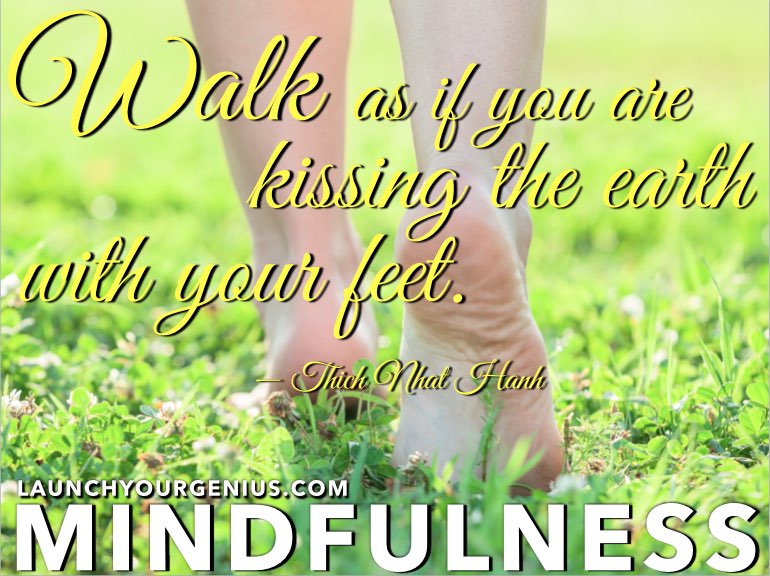


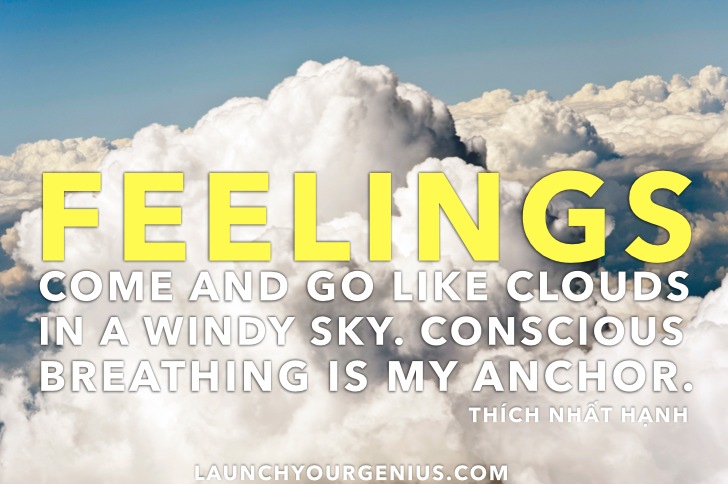
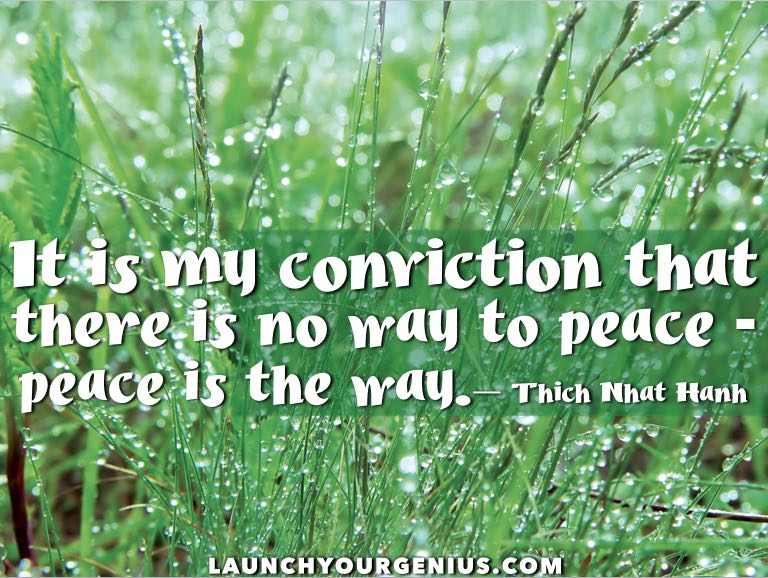


Ritu ahuja says
Great post. Love reading it. 🙂
Harish says
Hi Ritu,
Thanks a lot for your comment and the very kind words! I greatly appreciate your support and encouragement.
Thanks and hope to see you soon,
Harish
Kabie says
That wad a great post. This is my first time hearing of this great man and interestingly, his sayings are great.
Harish says
Hey Kabie,
Thanks a lot for your comment and I appreciate the kind words. I have been thoroughly enjoying the work of Thay over the years and I am still learning from his teachings.
Thanks and come back soon!
Harish
Julie Sylvia says
4. Develop a Deep Sense of Self Acceptance
and
9. Redefine Love and Supercharge your Relationships
The importance of 4. in achieving 9. has been made abundantly clear in my life as of late.